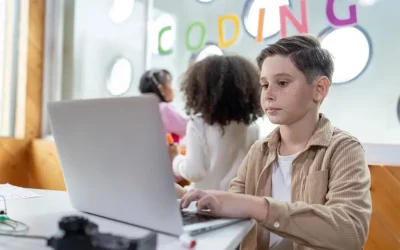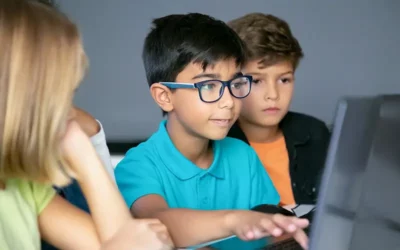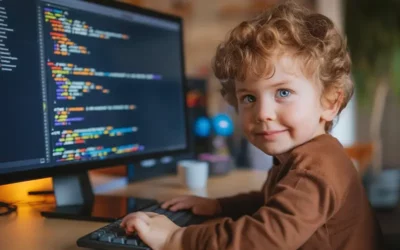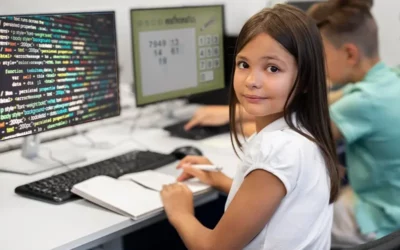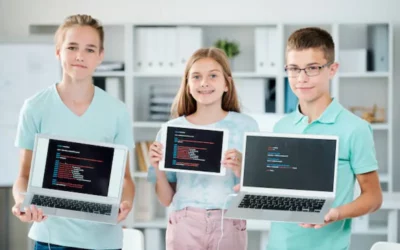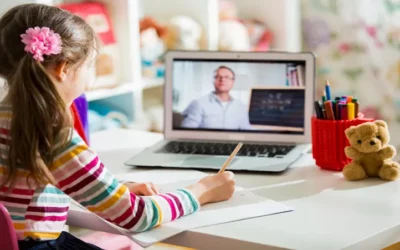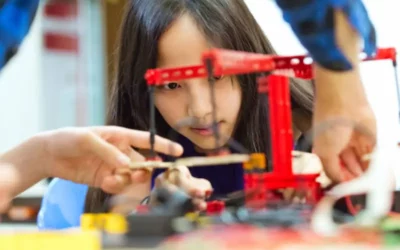As a parent, you want to provide your child with the best opportunities to thrive in the digital age. One such opportunity is learning to code. Coding programs for kids have gained immense popularity in recent years, offering a fun and educational way for children to develop critical skills while unlocking their potential. In this article, we will explore the world of coding programs for kids, discussing their benefits, different types, and how to choose the right program for your child.
Table of contents
Why Coding Programs Are Beneficial for Kids
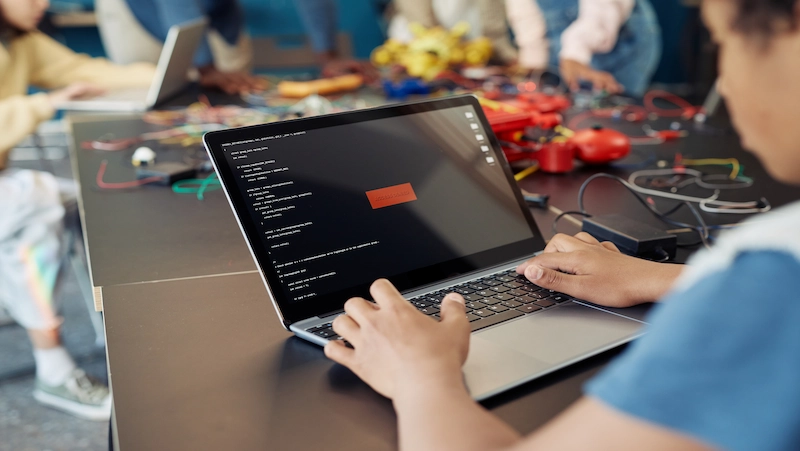
Coding programs offer numerous benefits for children, extending beyond computer skills. Let’s dive into the reasons why coding is beneficial for kids:
- Enhances Problem-Solving Skills: Coding involves breaking down complex problems into smaller, manageable steps. By learning to code, kids develop critical thinking and problem-solving skills, enabling them to approach challenges creatively and logically.
- Fosters Creativity and Innovation: Coding encourages children to think outside the box and express their creativity. They learn to create interactive stories, games, animations, and even their own websites, giving them a platform to unleash their imagination.
- Promotes Computational Thinking: Computational thinking is a foundational skill in the digital age. Through coding, kids learn to analyze problems, organize data, and develop step-by-step solutions. These skills are transferable to various areas of their lives.
- Builds Persistence and Resilience: Coding is a process that requires perseverance. Children learn to debug their code, troubleshoot errors, and persist until they achieve the desired outcome. This fosters resilience and the ability to learn from failures and setbacks.
- Prepares Kids for the Future: In a world increasingly driven by technology, coding is a valuable skill for future careers. By introducing coding at an early age, children gain a head start in understanding and utilizing technology, empowering them for success in the digital era.
Types of Coding Programs for Kids
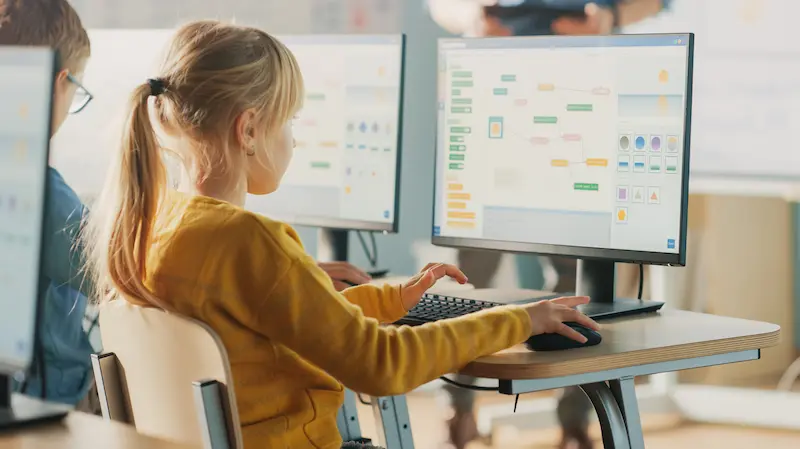
There are various types of coding programs available to cater to different preferences and learning styles. Let’s explore some popular options:
Online Coding Programs
Online coding classes for kids provide flexibility and convenience, allowing children to learn coding at their own pace from the comfort of their homes. These programs often utilize interactive platforms and engaging tutorials to teach coding concepts through games, puzzles, and projects.
Coding Camps and Workshops
Coding camps and workshops offer immersive experiences where kids can dive deep into coding with the guidance of expert instructors. These programs provide hands-on learning, collaboration opportunities, and the chance to work on exciting projects alongside peers who share their passion for coding.
Coding Toys and Games
Coding games for kids and toys combine play with learning, making coding accessible and enjoyable for young children. These physical or digital toys introduce coding concepts through interactive play, enabling kids to experiment, problem-solve, and develop foundational coding skills in a playful environment.
Coding Clubs and Communities
Coding clubs and communities bring together like-minded children and provide a supportive environment for learning and collaboration. Kids can engage in coding projects, share their creations, and receive feedback from their peers and mentors. These clubs foster a sense of belonging and inspire kids to continue their coding journey.
Coding Curriculums in Schools
Many schools now incorporate coding into their curriculum, recognizing its importance in preparing students for the future. These coding programs are integrated into various subjects or offered as standalone courses, equipping children with essential digital skills and fostering a deeper understanding of technology.
How to Choose the Right Coding Program for Your Child

When selecting a coding program for your child, consider the following factors:
- Age Appropriateness: Ensure that the program is suitable for your child’s age group. Younger children may benefit from programs with a focus on visual programming or block-based coding, while older children can explore text-based coding languages.
- Learning Style: Consider your child’s learning style and preferences. Some children may thrive in self-paced online programs, while others may prefer the structure and social interaction of coding camps or clubs.
- Program Content and Approach: Review the program’s curriculum and teaching approach. Look for programs that strike a balance between theoretical concepts and hands-on projects, allowing children to apply their coding skills in practical ways.
- Qualified Instructors and Support: Ensure that the program has experienced instructors who can guide and support your child’s learning journey. Qualified instructors can provide valuable feedback, answer questions, and inspire kids to explore coding further.
- Engagement and Fun Factor: Coding should be fun and engaging for kids. Look for programs that incorporate gamification, interactive activities, and creative projects to keep children motivated and excited about learning to code.
Tips for Engaging Your Child in Coding

To enhance your child’s coding experience and foster their engagement, consider the following tips:
- Provide Resources and Tools: Offer coding books, online tutorials, coding toys, or educational apps that your child can explore independently.
- Set Coding Challenges: Encourage your child to set coding goals and challenges. This can be creating a simple game, building a website, or solving a programming puzzle.
- Support Collaboration: Arrange coding playdates or encourage your child to join coding clubs or communities where they can collaborate with peers and learn from each other.
- Recognize and Celebrate Achievements: Acknowledge your child’s progress and celebrate their coding accomplishments. This boosts their confidence and motivation to continue exploring coding.
- Make Real-World Connections: Help your child see the practical applications of coding in real life. Discuss how coding is used in their favorite apps, websites, or even in robotics and automation.
Common Misconceptions about Kids and Coding
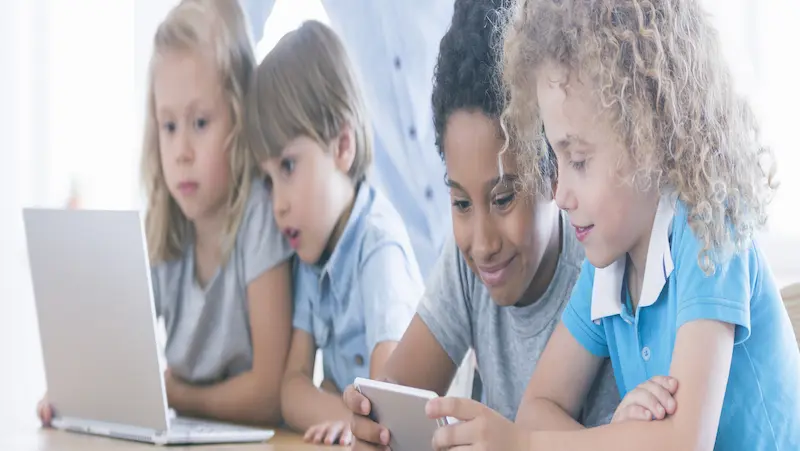
There are some common misconceptions about kids and coding that we should address:
- Coding is Only for Mathematically Inclined Kids: Coding is a creative endeavor that combines logic and problem-solving with artistic expression. It is not limited to children who excel in math. Kids from all backgrounds and interests can enjoy and succeed in coding.
- Coding is Too Difficult for Kids: While coding may seem complex at first, it can be taught in a simplified and age-appropriate manner. Coding programs for kids use visual interfaces, block-based coding, and interactive activities to make learning coding accessible and enjoyable.
- Coding is Isolating: Coding can be a collaborative activity. Many coding programs encourage teamwork, peer feedback, and collaboration, allowing children to learn from and with their peers. Coding clubs and communities provide opportunities for social interaction and support.
- Coding is Boring: On the contrary, coding can be highly engaging and exciting. Kids get to bring their ideas to life, create animations, build games, and solve interactive puzzles. The possibilities are limitless, sparking curiosity and a sense of accomplishment.
- Coding is Only for Future Programmers: While coding can lead to a career in programming, its benefits extend beyond that. Enrolling in a child programming course can enhance problem-solving, critical thinking, creativity, and computational skills, which are valuable in various fields, from science and engineering to arts and entrepreneurship.
Conclusion
Coding programs for kids offer a gateway to a world of opportunities, empowering children to develop crucial skills while having fun. By exploring the various types of coding programs available, choosing the right program for your child, and engaging them in coding activities, you unlock their potential and set them on a path to thrive in the digital age. Embrace the power of coding and watch as your child’s creativity, problem-solving abilities, and computational thinking soar. Sign up for coding programs for kids today and unlock a future full of possibilities!
Frequently Asked Questions (FAQ’s)
The ideal age to start coding varies, but many coding programs cater to children as young as five years old. Young children can begin with visual programming or block-based coding languages, gradually progressing to more complex concepts as they grow older.
No, coding programs for kids are designed to be beginner-friendly. They assume no prior computer knowledge and start with the basics, gradually building up coding skills and concepts in a step-by-step manner.
No, coding programs for kids are designed to be beginner-friendly. They assume no prior computer knowledge and start with the basics, gradually building up coding skills and concepts in a step-by-step manner.
Most coding programs require a computer or tablet and an internet connection. Depending on the program, additional software or coding platforms may be recommended. Check the program’s requirements or consult with the program provider for specific details.
Yes, coding can be learned through various resources outside of formal programs. Online tutorials, coding books, coding toys, and educational apps provide opportunities for self-paced learning and exploration.
Coding equips children with essential skills for the future. It enhances problem-solving, critical thinking, creativity, and computational skills, which are highly valued in today’s digital world. Coding can open doors to future careers in technology, engineering, game development, data analysis, and more.

 We are an army of educators and passionate learners from BrightChamps family, committed to providing free learning resources to kids, parents & students.
We are an army of educators and passionate learners from BrightChamps family, committed to providing free learning resources to kids, parents & students.








